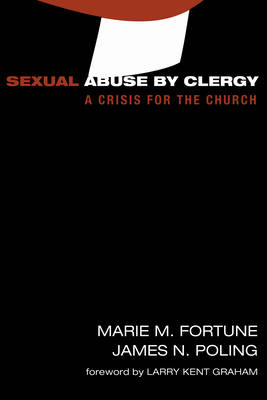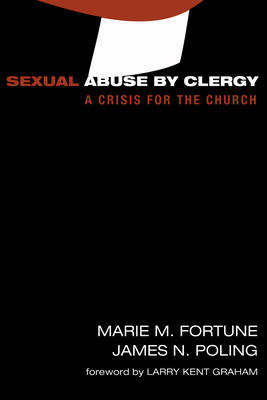
Bedankt voor het vertrouwen het afgelopen jaar! Om jou te bedanken bieden we GRATIS verzending (in België) aan op alles gedurende de hele maand januari.
- Afhalen na 1 uur in een winkel met voorraad
- In januari gratis thuislevering in België
- Ruim aanbod met 7 miljoen producten
Bedankt voor het vertrouwen het afgelopen jaar! Om jou te bedanken bieden we GRATIS verzending (in België) aan op alles gedurende de hele maand januari.
- Afhalen na 1 uur in een winkel met voorraad
- In januari gratis thuislevering in België
- Ruim aanbod met 7 miljoen producten
Zoeken
Sexual Abuse by Clergy
A Crisis for the Church
Marie M Fortune, James Newton Poling
Paperback | Engels
€ 24,45
+ 48 punten
Omschrijving
Clergy sexual abuse is a horrible reality. These essays reveal that between ten and twenty percent of clergy offend against the integrity of the pastoral relationship and the vulnerability of those entrusted to their care by crossing the boundary from religious service to sexual activity. The survivors of such abuse face terrible consequences of personal and relational brokenness and the loss of God and the church. The church and pastoral care and counseling agencies become conflicted by competing claims about responsibility and paralyzed by the threat of costly lawsuits from all involved parties. And the ongoing failure to bring perpetrators to account and to bring about vindication for the survivors undermines the vitality of our religious communities and the credibility of our message. . . . The core theme of these essays is the need to rethink and reconstitute power, including our view of God's power, into genuinely mutual and accountable arrangements. Healing, intimacy, reconciliation, and forgiveness derive from justice and vindication, rather than vice versa. The healing and restoration of persons, and a genuine social advance, will come only when we are able to reconceive power and order our practice of ministry, care, and counseling in non-coercive and non-patriarchal terms. The challenge is a cultural challenge, with serious consequences for elevating those of low degree and bringing the mighty down to the possibility of genuine redemption. --from the Introduction
Specificaties
Betrokkenen
- Auteur(s):
- Uitgeverij:
Inhoud
- Aantal bladzijden:
- 76
- Taal:
- Engels
Eigenschappen
- Productcode (EAN):
- 9781556356865
- Verschijningsdatum:
- 1/08/2008
- Uitvoering:
- Paperback
- Formaat:
- Trade paperback (VS)
- Afmetingen:
- 145 mm x 211 mm
- Gewicht:
- 113 g

Alleen bij Standaard Boekhandel
+ 48 punten op je klantenkaart van Standaard Boekhandel
Beoordelingen
We publiceren alleen reviews die voldoen aan de voorwaarden voor reviews. Bekijk onze voorwaarden voor reviews.









